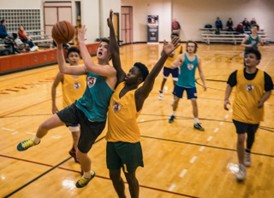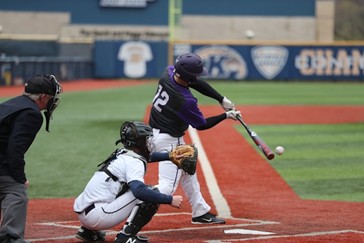
Youth sports play a critical role in a child's physical, social, and emotional development. In recent years, there has been an increasing emphasis on the benefits of being a multi-sport athlete, especially for children who play baseball.
Many parents and coaches debate whether specializing in one sport at a young age is the best path for long-term success. However, research and real-world examples suggest that playing multiple sports provides significant advantages, from reducing injury risk to enhancing overall athletic performance and mental resilience. By engaging in different activities, young athletes develop diverse skills, such as agility, coordination, and endurance—all of which can complement essential training elements like batting practice drills.
One of the biggest dangers of early specialization in baseball is the increased risk of overuse injuries. Young athletes who play baseball year-round put excessive strain on specific muscle groups, particularly the shoulder and elbow, due to repetitive throwing motions. Conditions like Little League elbow and rotator cuff injuries are common in players who do not give their arms sufficient rest.
Multi-sport participation allows young athletes to develop different muscle groups and movement patterns, reducing stress on any single area of the body. For example:
By diversifying their activities, young baseball players reduce their chances of long-term injuries that could derail their athletic careers.
Different sports require unique movement patterns, hand-eye coordination, and strategic thinking, all of which contribute to overall athletic development.
These complementary skills help create a more complete athlete, giving young players an advantage over those who only focus on baseball.

Burnout is another real concern for young athletes who specialize in one sport too early. Constant pressure to perform, high expectations from coaches, and the repetitive nature of playing a single sport can lead to mental exhaustion and loss of passion for the game.
Multi-sport athletes experience a refreshing change of pace throughout the year, keeping their enthusiasm for sports alive. By switching between different athletic environments, they avoid monotony and develop mental resilience, adaptability, and problem-solving skills.
Furthermore, exposure to different team dynamics and coaching styles helps young athletes become more coachable and develop social skills that benefit them on and off the field.
Studies show that many elite-level baseball players were multi-sport athletes in their youth. Why is this the case?
Multi-sport athletes often avoid early burnout, keeping their passion for baseball alive into their teenage years and beyond. Their well-rounded skill sets give them a competitive edge as they advance to higher levels of play. They also tend to have fewer chronic injuries, allowing them to maintain peak performance for longer periods.
Encouraging kids to participate in multiple sports increases their chances of sticking with baseball for the long haul, whether at the high school, college, or even professional level.
Playing different sports exposes young athletes to a variety of team environments, coaching styles, and leadership opportunities. Each sport has unique team dynamics that help players develop a broader understanding of teamwork and leadership.
For example:
Basketball and soccer require constant communication and teamwork, helping baseball players develop better on-field communication skills.
Football teaches discipline, accountability, and strategic thinking, all of which apply to baseball situations like managing pitch counts or defensive positioning.
Wrestling and track and field emphasize individual effort and self-discipline, reinforcing personal accountability in baseball training.
These experiences shape young athletes into well-rounded leaders who can handle various team situations effectively.
For players who aspire to play at the collegiate level, being a multi-sport athlete can be an advantage in the recruiting process. College coaches look for athletes who possess versatility, adaptability, and a strong work ethic—qualities often developed through playing multiple sports.
Recruiters also appreciate multi-sport athletes because:
Even if a player focuses on baseball in college, their experience in other sports often sets them apart from single-sport athletes in terms of athleticism and mental toughness.

At its core, youth sports should be fun. Kids who are pushed into early specialization often feel intense pressure to perform, which can lead to stress and anxiety. Playing multiple sports allows young athletes to enjoy different experiences, explore new challenges, and develop a lifelong love for athletics.
Trying new things also gives children the chance to discover their true passions. Some may initially start with baseball but find they excel in basketball or track. Encouraging exploration rather than forcing specialization ensures that kids find the sport that truly excites them.
Encouraging young baseball players to participate in other sports offers numerous physical, mental, and social benefits. From reducing the risk of overuse injuries and developing a well-rounded skill set to enhancing leadership abilities and increasing recruitment opportunities, the advantages of being a multi-sport athlete are undeniable.
Rather than focusing solely on baseball year-round, parents and coaches should support young athletes in exploring different sports. Not only will this keep them engaged and healthy, but it will also set them up for long-term success in both sports and life.
Ultimately, a well-rounded athlete is a better athlete—and a happier one too.